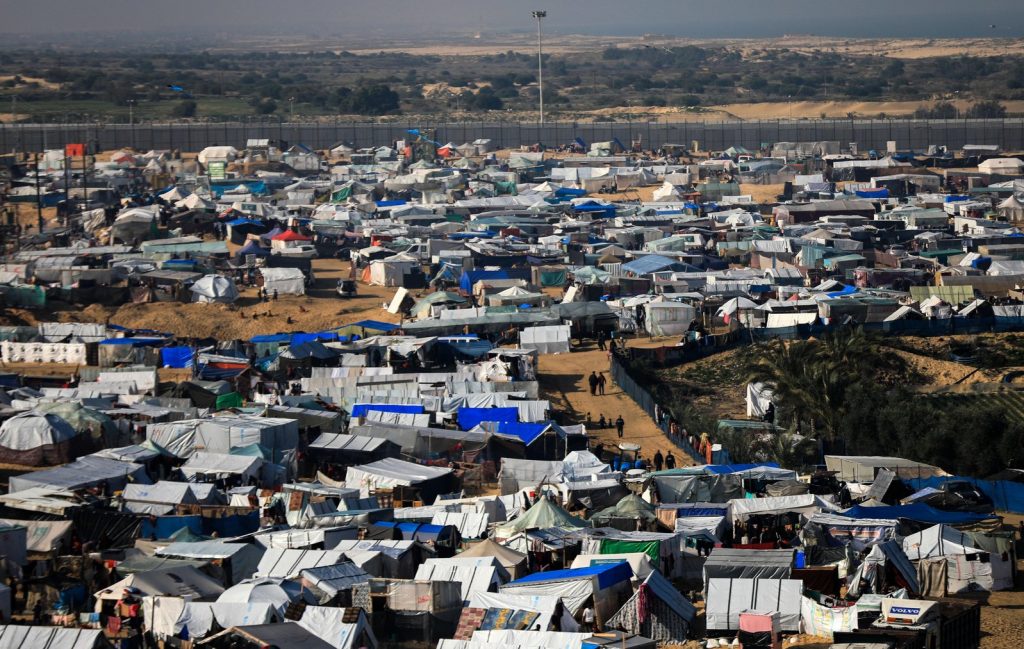
### The Evolving Crisis for Chemists and Academics in Israel and Gaza Amid Continued Hostilities
The protracted Israel–Hamas conflict, now extending into its second year, has severely affected academic, research, and scientific endeavors, especially for chemists and other scholars located in Gaza and Israel. The circumstances have recently escalated with the onset of confrontation between Israel and the Iran-supported militant group Hezbollah, based in Lebanon. This latest outbreak of violence indicates more destruction and instability for the scientific community in the region.
#### **Gaza’s Educational Framework in Shambles**
By mid-January of this year, various media sources disclosed that Israeli military actions resulted in the obliteration of the last functioning university in Gaza—Al Israa University. The ongoing military operations have devastated educational facilities in Gaza, resulting in the deaths of nearly 100 university professors by April 2024, according to United Nations estimates. Overall, the Hamas-mediated Gaza health ministry claims that over 41,000 individuals have lost their lives, while around 1,700 Israelis have also died, including casualties from the notorious October 7 attacks last year.
Among those profoundly impacted is Dr. Rami Morjan, a distinguished organic and medicinal chemist at the Islamic University of Gaza. Since the destruction of his laboratory and university at the war’s outset, Morjan has been residing in a refugee camp in Deir El-Balah. Sharing a cramped space with his wife, four children, and extended family members, his existence has dramatically transformed from scholarly research to mere survival. “We spend most of our time trying to secure the essential needs for life like food and water,” Morjan recounted, emphasizing the grim conditions at the camp, where even electricity is a critically scarce resource.
In a poignant story reflecting the war’s personal impact, one of Morjan’s research assistants was killed alongside her entire family shortly after the hostilities began. Only her infant daughter survived. Despite overwhelming sorrow and adversity, Morjan maintains communication with his remaining colleagues and students through WhatsApp—a small yet crucial link to his shattered academic life.
The toll on the academic community has been staggering. As of April 2024, 95 professors from Gaza have been reported deceased, according to the *Scholars at Risk* (SAR) Network. Among the deceased was Sufyan Tayeh, a prominent physicist and president of the Islamic University of Gaza, who lost his life in an Israeli airstrike in December 2023.
Morjan conveyed the challenges of pursuing scientific endeavors in this environment. “Writing scientific research necessitates a supportive psychological atmosphere and a clear mind, which are both unavailable during wartime,” he stated.
#### **Instructing Chemistry Amidst Conflict**
Although most research activities have ground to a halt, Morjan has managed to continue delivering five chemistry courses remotely. By leveraging pre-recorded lectures from the COVID-19 pandemic, Morjan teaches subjects like organic chemistry, biochemistry, and industrial chemistry to students who remain in Gaza or have sought refuge in Egypt. His students, many enduring their own challenges, submit assignments and exams via e-learning platforms such as Moodle. However, the restrictions on power in Gaza and the realities of life in a refugee camp make sustaining this educational effort a daunting task.
The devastation has also halted research and disrupted the academic careers of numerous other scholars in Gaza. Dr. Samer Abuzerr, an expert in water-borne diseases at the University College of Science and Technology in Khan Younis, is similarly displaced, residing in the Al-Nusairat Refugee Camp. Airstrikes and shortages of resources have made it nearly impossible for him to carry out field research or fulfill his academic responsibilities.
“Restricted access to electricity, the internet, and other necessities means that both in-person and online teaching are nearly impossible,” Abuzerr lamented. “The new conflict between Israel and Hezbollah has only worsened the situation, further complicating the entrance of aid into Gaza.”
#### **Hezbollah Conflict Introduces New Dimensions of Uncertainty in Northern Israel**
The circumstances are equally precarious for several Israeli researchers. The outbreak of violence in northern Israel has added to the turmoil. Haifa, a port city in the north and home to Israel’s Technion – Israel Institute of Technology – has come under fire from Hezbollah rockets. Dr. Renana Poranne, a physical organic chemist at the Technion, describes living in constant fear as missiles land close by. “We’ve been experiencing rocket fire on Haifa,” she recounts. “The north of Israel has erupted in flames.”
Poranne, who is also a dual citizen of Israel and the U.S., shared her experience of a heavy onslaught of rockets targeting Haifa on the one-year mark of the conflict’s escalation. “We heard at least 20 rocket interceptions, and each time our entire house shook,” she stated, highlighting the mental strain of existing in a conflict zone.
Adding to the anxiety is the fact that Haifa is home